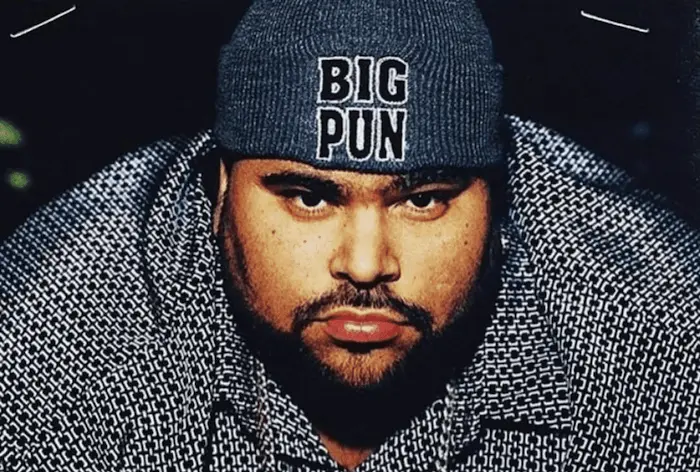Big Pun, born Christopher Lee Rios, left an indelible mark on the world of hip-hop. Hailing from the South Bronx, he rose to fame in the late 1990s with his unique style and lyrical prowess. This article delves into the essence of Big Pun’s music, exploring his themes, influences, and the legacy he left behind.
I. Early Life and Development
1. Early Life and Influences
Christopher Rios was born on November 10, 1971. His upbringing in the South Bronx exposed him to various musical influences, from Latin music to the burgeoning hip-hop scene. His Puerto Rican heritage played a crucial role in shaping his identity and music. Artists like Kool G Rap and KRS-One were major influences, and their complex lyrics inspired Big Pun to hone his craft.
2. Breakthrough and Rise to Fame
Big Pun’s journey to fame wasn’t immediate. He started in the early 1990s, forming a group called Full-A-Clips with fellow rappers Triple Seis and Cuban Link. However, his big break came when he caught the attention of Fat Joe, a fellow Bronx rapper. Fat Joe featured Big Pun on his 1995 album “Jealous One’s Envy,” which helped Pun gain recognition in the hip-hop community.
3. Debut Album: Capital Punishment
In 1998, Big Pun released his debut solo album, “Capital Punishment.” This album was a game-changer for Latin rappers and the hip-hop industry as a whole. “Capital Punishment” debuted at number five on the Billboard 200, making Big Pun the first Latino rapper to achieve this feat. The album was lauded for its lyrical complexity, diverse themes, and seamless blending of English and Spanish.
II. Themes in Big Pun’s Music
Big Pun’s music covered a wide range of themes, from personal struggles to broader social issues. Here’s a closer look at some of the key themes:
1. Personal Struggles and Triumphs
Big Pun’s lyrics often reflected his personal life, including his struggles with obesity and the challenges of growing up in a tough neighborhood. In “Capital Punishment,” tracks like “Beware” and “You Ain’t a Killer” reveal his inner conflicts and resilience. He openly discussed his weight issues, which eventually led to his untimely death, but he also celebrated his successes and perseverance.
2. Street Life and Survival
Many of Big Pun’s songs depict the harsh realities of street life. He painted vivid pictures of the violence, crime, and survival tactics prevalent in his environment. Tracks like “Super Lyrical” and “Tres Leches (Triboro Trilogy)” showcase his storytelling ability, bringing listeners into his world with raw and unfiltered narratives.
3. Latin Pride and Cultural Identity
As a proud Puerto Rican, Big Pun infused his music with Latin pride. He often incorporated Spanish phrases and references to Latin culture, bridging the gap between his heritage and the predominantly African-American hip-hop scene. Songs like “100%” and “Still Not a Player” highlight his bilingual prowess and celebrate his roots.
4. Bravado and Skill
Big Pun was known for his intricate rhyme schemes and rapid-fire delivery. He had a knack for blending braggadocio with clever wordplay, making him a formidable presence in the rap game. His confidence and technical skill are evident in tracks like “Dream Shatterer” and “The Punisher,” where he showcases his lyrical dexterity.
III. Impact on Hip-Hop
Big Pun’s influence on hip-hop is undeniable. He broke barriers for Latin artists in a genre that was predominantly African-American. His success opened doors for future Latin rappers like Fat Joe, Cypress Hill, and N.O.R.E. Additionally, his technical prowess and lyrical complexity set new standards for MCs, influencing countless artists who followed.
IV. Personal Struggles and Health Issues
Despite his success, Big Pun’s life was marred by personal struggles, particularly his battle with obesity. At his peak, he weighed over 700 pounds, which severely impacted his health. He made several attempts to lose weight, including attending a weight loss center, but the stress of his career and personal issues made it difficult.
V. Death and Legacy
On February 7, 2000, Big Pun passed away from a heart attack at the age of 28. His death was a significant loss to the hip-hop community, but his legacy continues to live on. “Yeeeah Baby,” his second album, was released posthumously and received critical acclaim. It further cemented his place in hip-hop history.
VI. Posthumous Recognition and Influence
Big Pun’s impact did not end with his death. He remains a celebrated figure in hip-hop, with many artists citing him as an influence. His unique style and contributions to the genre have been recognized in various ways, from tributes in songs to documentaries exploring his life and career.
See Also: Decoding the Art of Freestyle Rap: An Overview
VII. Conclusion
Big Pun’s music was a reflection of his life, filled with triumphs, struggles, and a deep sense of cultural pride. His ability to blend complex lyrical themes with technical skill made him a standout artist in the late 1990s. Although his life was cut short, his legacy endures, inspiring future generations of rappers and cementing his place as a pioneer in hip-hop.
Big Pun’s story is one of talent, resilience, and cultural pride. His contributions to hip-hop and his representation of Latin culture in a predominantly African-American genre paved the way for many artists to come. His music continues to resonate with fans old and new, proving that his influence is timeless.

